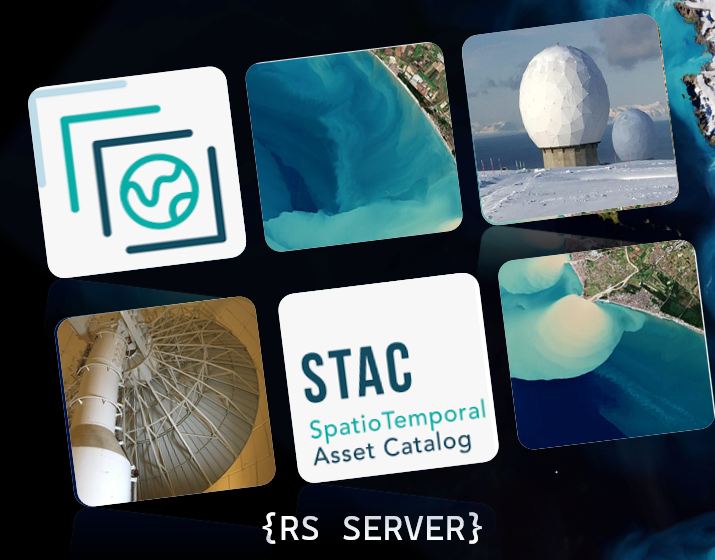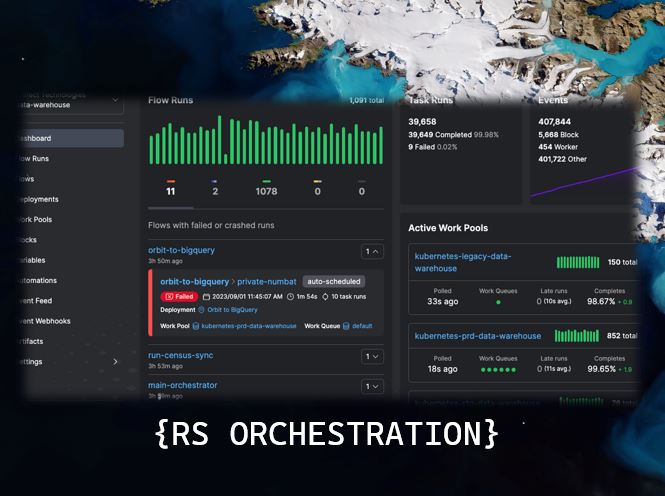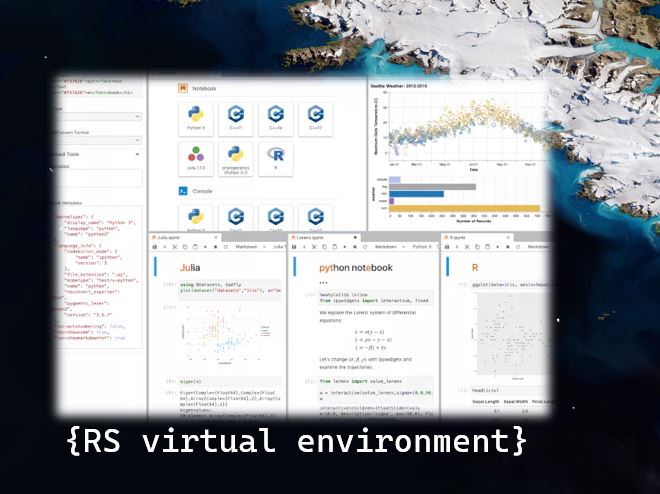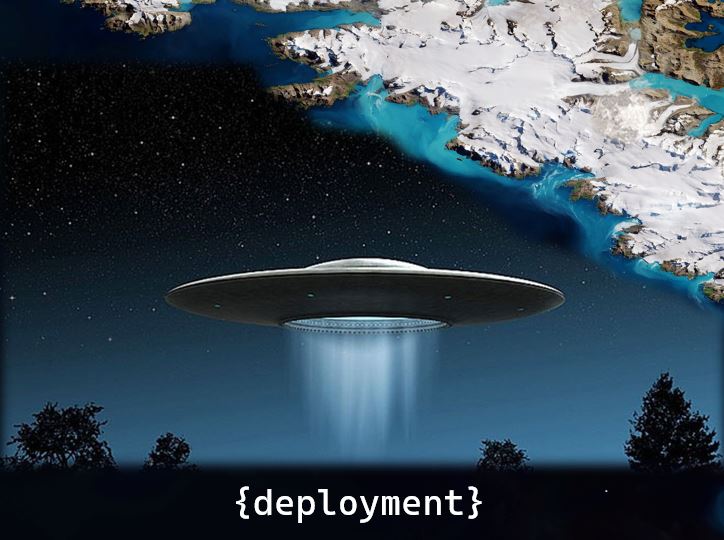Reference System Python will support at first processing chains for Sentinel-1, Sentinel-2, and Sentinel-3 data.
 |
 |
 |
|---|---|---|
RS-Server
The Reference System server offers essential services for building Copernicus processing workflows, all secured by stringent access controls. With RS-Server, STAC integration is seamless. RS-Server features a comprehensive catalog of Sentinel products, fully compatible with the STAC (SpatioTemporal Asset Catalog) standard. Additionally, it provides STAC interfaces to retrieve AUXIP and CADIP data. A versatile staging function rounds out this robust suite of services.
Processing workflow as a code
RS Python leverages the Prefect orchestrator for managing and automating workflows. Prefect simplifies workflow management, reduces operational costs, and provides a smoother experience for data orchestration compared to other tools. Its flexibility, quick adoption, and supportive community make it an excellent choice for RS’s workflow needs.
Virtual environment
RS Python provides access to JupyterLab to end-user. The end-user can build or start already made Prefect worflows from rs-client libraries. JupyterLab proposes a flexible workspace organization to users making it easier to work with multiple tabs simultaneously. Additionally, JupyterLab provides a comprehensive Markdown editor, enhancing the writing and documentation experience within notebooks. JupyterLab offers a richer and more efficient data programming experience, making it a wise choice for RS.
RS deployment
The rs-server can be deployed on several environments. On a Kubernetes cluster or on a local machine. From the local machine it is also possible to access both local Catalog and remote rs-server services.



